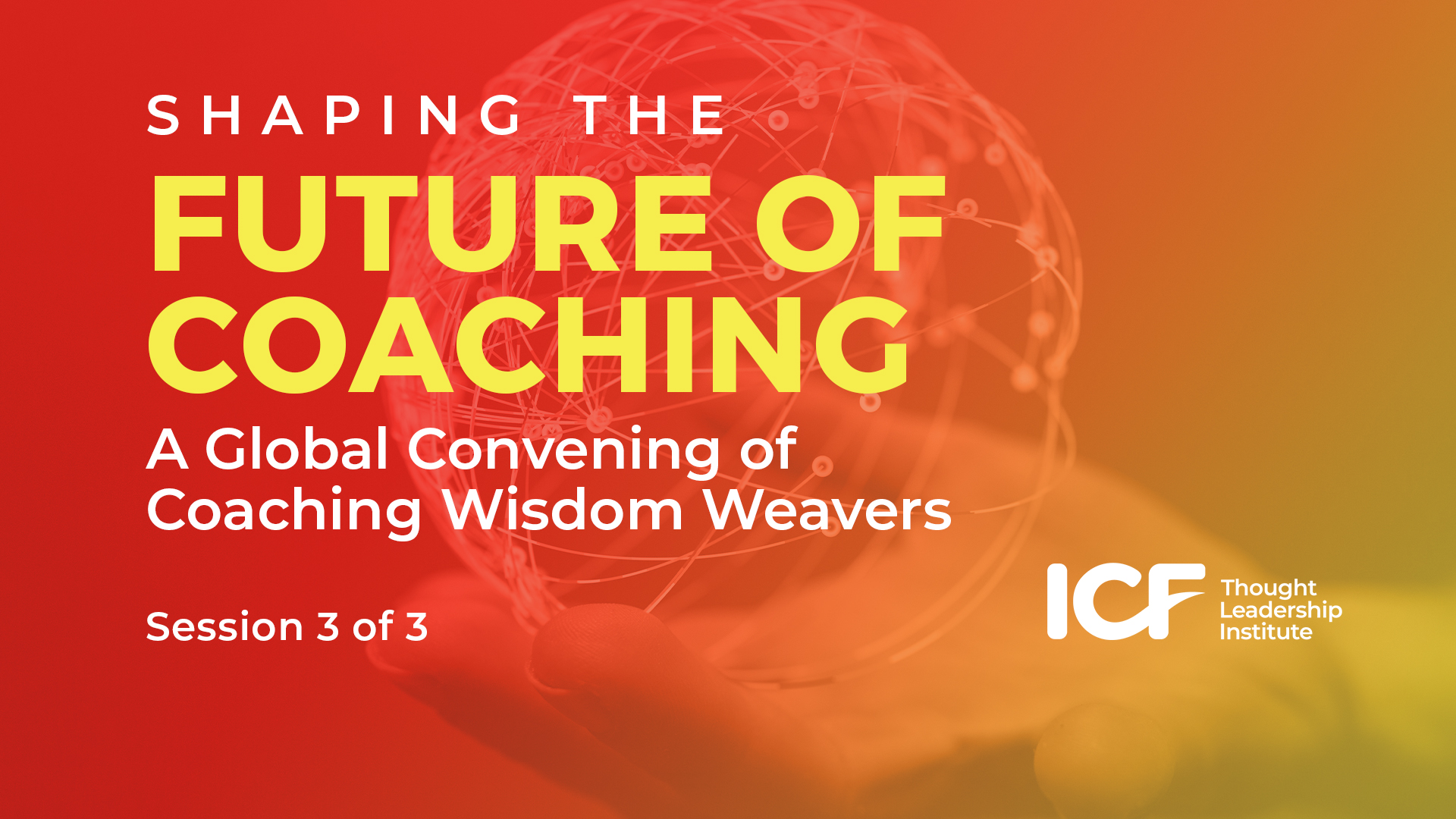Racial and cultural barriers impact the coaching profession
Wisdom Weavers discuss the impact of systemic racism on coaches who are persons of color. They further reflect on how the historical origins of coaching span cultural boundaries.
Challenge
Coaches who are persons of color face underrepresentation and inequality
Opportunity
The coaching field can elevate multicultural coaching practices
Impact
Coaches and clients benefit from contextual coaching approaches
Wisdom Weavers
Systemic racism impacts coaches who are people of color

In the Health Affairs article, “Systemic and Structural Racism: Definitions, Examples, Health Damages, and Approaches To Dismantling,” healthcare practitioners Paula A. Braverman, Elaine Arkin, Dwayne Proctor, Tina Kauh, and Nicole Holm explain how systemic racism functions in society:
“Racism is not always conscious, explicit, or readily visible — often, it is systemic and structural. Systemic and structural racism are forms of racism that are pervasively and deeply embedded in systems, laws, written or unwritten policies, and entrenched practices and beliefs that produce, condone, and perpetuate widespread unfair treatment and oppression of people of color, with adverse health consequences. Examples include residential segregation, unfair lending practices and other barriers to home ownership and accumulating wealth, schools’ dependence on local property taxes, environmental injustice, biased policing and sentencing of men and boys of color, and voter suppression policies.”
Wisdom Weaver Dr. Terrence Maltbia shares: “When you coach an individual, their context really does matter.” Terrence explains that as a person of color, he experiences systemic racism every day, so he is constantly thinking about how these systemic factors influence the coaching experience. From his perspective, both systemic dynamics and individual dynamics must be considered when coaching clients and supporting coaches who are persons of color.
In his home country, England, Wisdom Weaver Dr. Jonathan Passmore explains some of the critical issues Black coaches face: “the evidence is telling us that the perception for engaging with indigenous, Black coaches is a perception of inequality. The evidence is also telling us that Black coaches in certain major economies are statistically underrepresented.” Moreover, “[the research is] also telling us, which was most worrying, that Black and [multiracial] coaches were paid less than white coaches.”
Expanding the scope of research elevates non-Western voices
Jonathan addresses the notion of cross-culturalization and the concerns of a ‘one-size-fits-all’ perspective. Specifically, he observes that coaching has found great success in “the UK, the US, France, and Germany [and] into many other parts of the world.” This may explain why coaching research largely stems from data collected in WEIRD [Western, educated, industrialized, rich, and democratic] societies, which inherently limits the value of these research findings in non-WEIRD contexts.
Passmore acknowledges the paucity of non-WEIRD research studies and asks:
“How do we start to, as researchers, begin to engage in other societies where the samples are different from these? Are the answers going to be the same? And as we think about that cross-cultural work, how do we begin to think about engaging in a way that doesn’t simply assume that the McDonalds-ization of coaching? Is the model that we’ve created in our own experiences in the UK or in the US the hamburger version of coaching as equally delicious in Nigeria or in Korea or in Indonesia? So how do we begin to think about amplifying African and Asian models of coaching? How do we begin to think about researching those with samples that are different to those that we’ve used before?”

In order to fully grasp the implications of race within the coaching profession, researchers need to explore the issue from a more expansive point of view—and researchers themselves must become more diverse.
Historical origins of coaching span cultural boundaries
Wisdom Weaver Morel Fourman offers a historical perspective on coaching: “there is a habit of thinking of coaching as a new thing. Actually, it’s thousands of years old, as old as human relationships, and if I went to the Anglo-Saxon, the Northern Hemisphere mindset of English speakers — we’re a small fraction of the world’s population. . . So we [as researchers] have to cast our net out wide, much wider.”
Reflecting on this deep historical perspective sheds new light on the role of coaching as an agent of change in societies across time.
Morel explains. “We can’t just export coaching, we have to become learners from different cultures of coaching, and then we might deserve the role of being a vehicle for coaching and a voice for coaching in the world, and so, in terms of time, we’re just touching a tiny, tiny fraction of history, and we’re calling that coaching in terms of population and language and geographic coverage. We’re just so tiny, so systematic, I would encourage ICF generally and TLI to listen systematically to the system of human thinking and human interaction, and then we might catch a glimpse of touching issues like diversity, justice, social inclusion, we might catch a glimpse of changing the course of history, through coaching.”
Coaching can address racial and cultural barriers by:
- Researching and elevating multicultural, worldwide coaching practices
- Supporting coaches to embrace contextual methods that meet client need
Coaching and the United Nations Global Goals
Coaching is constantly evolving and growing to contribute to positive changes in the world at large. Conversations on coaching research contribute to the developments by bringing attention to the gaps and assisting in addressing the consequences of racial inequalities. With a constant hope of working beyond humanity’s past mistakes, the themes strongly connect with the United Nations Global Goal 10, which aims to reduce inequality within and among countries and nations. Inequality, as it relates to race, calls for developments in coaching and highlights the importance of understanding the nuances of every individual in order to best assist personal and universal development. The road is long, but through constant outreach, racial divides can be addressed.
About this Convening
Forty-one Wisdom Weavers from across the globe gathered to share their thoughts and observations on Shaping the Future of Coaching across three separate Future of Coaching Convenings in September 2021. Learn more about the participants and topics covered in this Convening.
For the complete report and research recommendations, see Boyatzis, R.E., Hullinger, A., Ehasz, S.F., Harvey, J., Tassarotti, S., Gallotti, A., & Penafort, F. (2022). The grand challenge for research on the future of coaching. Journal of Applied Behavioral Science. DOI: 10.1177/00218863221079937






